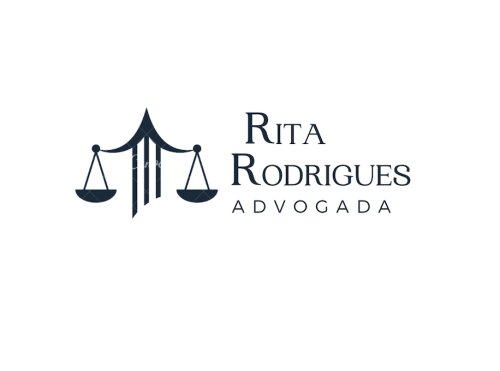Best Corporate Governance Lawyers in Porto
Share your needs with us, get contacted by law firms.
Free. Takes 2 min.
List of the best lawyers in Porto, Portugal
About Corporate Governance Law in Porto, Portugal
Corporate governance refers to the system of rules, practices, and processes by which companies are directed and controlled. In Porto, Portugal, corporate governance is shaped by the country’s legal framework and European Union directives, and it plays a crucial role in creating transparent, accountable, and efficient corporations. Whether you are starting a company, managing a board, or dealing with compliance matters, understanding how local regulations and customs impact decision-making and reporting requirements is key to protecting your business and its stakeholders.
Why You May Need a Lawyer
There are many situations in which professional legal assistance is essential when dealing with corporate governance matters in Porto. These may include establishing a company, drafting or revising corporate bylaws, structuring a board of directors, ensuring compliance with legal and regulatory requirements, resolving shareholder disputes, and managing mergers, acquisitions, or restructuring. Legal counsel can also be vital when dealing with regulatory investigations, adapting to new legislation, and implementing best practices for transparency and accountability. Having an experienced lawyer on your side helps ensure your company operates within the law and safeguards the interests of all stakeholders.
Local Laws Overview
Corporate governance in Porto is principally governed by the Portuguese Commercial Companies Code, along with various sector-specific regulations and directives from the European Union. Key aspects include:
- Company Types: The two most common structures are the Sociedade por Quotas (Lda, a private limited company) and the Sociedade Anónima (SA, a public limited company), each having specific governance obligations.
- Board Structure: Requirements vary depending on company type, with clear distinctions between supervisory boards, management boards, and general assemblies.
- Disclosure and Accountability: Portuguese companies must keep precise records, publish annual reports, and undergo statutory audits when certain size criteria are met.
- Shareholder Rights: Shareholders are entitled to participate in decision-making, receive information, and challenge resolutions according to the company’s articles and law.
- Conflict of Interest: Directors and officers must act in the best interest of the company and avoid conflicts of interest, with heavy penalties for breaches.
- Regulatory Compliance: In regulated industries, bodies such as the Comissão do Mercado de Valores Mobiliários (CMVM) establish additional corporate governance rules.
Frequently Asked Questions
What is corporate governance?
Corporate governance refers to the rules, structures, and practices for running a company, focusing on the relationships between shareholders, directors, and management, as well as compliance with legal obligations.
Who is responsible for corporate governance in a Portuguese company?
The board of directors or managers, together with the general assembly of shareholders, are primarily responsible for governance, guided by the statutes and relevant legislation.
What are the main laws governing corporate governance in Porto, Portugal?
The Portuguese Commercial Companies Code is the principal source, supplemented by specific regulations for listed companies and EU directives.
What obligations do directors have under Portuguese law?
Directors must perform their duties with diligence and loyalty, avoid conflicts of interest, and comply with statutory and regulatory requirements.
Must all companies in Porto have a board of directors?
No, smaller companies, such as private limited companies (Lda), may designate one or more managers instead of a full board. Public companies (SA) usually have a board structure.
What information must be disclosed to shareholders?
Significant corporate decisions, financial statements, management reports, and any other information required by law or the company’s statutes must be disclosed to shareholders.
What are the penalties for breaching corporate governance laws?
Penalties can range from administrative fines to personal liability for directors, and in severe cases, criminal sanctions depending on the nature of the breach.
How are shareholder disputes resolved?
Most disputes are resolved through negotiation or mediation, but parties may also seek resolution through arbitration or the Portuguese courts if needed.
Are there specific governance requirements for listed companies?
Yes, listed companies are subject to stricter disclosure, transparency, and audit requirements, as regulated by the CMVM and European securities directives.
How can I ensure my company complies with corporate governance rules?
Establish clear internal policies, provide regular training for directors and managers, conduct periodic audits, and seek legal advice to stay informed on legislative changes and best practices.
Additional Resources
Several resources can assist you with corporate governance matters in Porto, Portugal. These include:
- Comissão do Mercado de Valores Mobiliários (CMVM): Regulates securities and market activities and provides guidance on governance for public companies.
- Instituto dos Registos e Notariado (IRN): Handles company registrations and provides statutory documentation requirements.
- Portuguese Bar Association (Ordem dos Advogados): Source for locating qualified lawyers and obtaining general legal information.
- Associação Portuguesa das Empresas Familiares: Offers guidance and support for governance of family-run businesses.
- Ministry of Justice: Provides details on legislation, regulatory frameworks, and public documentation.
Next Steps
If you need legal assistance related to corporate governance in Porto, Portugal, consider the following steps:
- Identify your company’s legal needs and specific questions or concerns regarding governance.
- Research and select a local lawyer or law firm with experience in corporate governance and company law.
- Prepare all relevant documents, including company statutes, historical corporate decisions, and any correspondence relating to your legal issue.
- Book a consultation to discuss your situation and obtain initial advice on the best course of action.
- Continue to stay informed on legal developments, and establish ongoing legal support if your company is subject to complex or evolving governance requirements.
Taking proactive measures will ensure your business not only complies with legal obligations but is also positioned for long-term success and stability in Porto’s corporate environment.
Lawzana helps you find the best lawyers and law firms in Porto through a curated and pre-screened list of qualified legal professionals. Our platform offers rankings and detailed profiles of attorneys and law firms, allowing you to compare based on practice areas, including Corporate Governance, experience, and client feedback.
Each profile includes a description of the firm's areas of practice, client reviews, team members and partners, year of establishment, spoken languages, office locations, contact information, social media presence, and any published articles or resources. Most firms on our platform speak English and are experienced in both local and international legal matters.
Get a quote from top-rated law firms in Porto, Portugal — quickly, securely, and without unnecessary hassle.
Disclaimer:
The information provided on this page is for general informational purposes only and does not constitute legal advice. While we strive to ensure the accuracy and relevance of the content, legal information may change over time, and interpretations of the law can vary. You should always consult with a qualified legal professional for advice specific to your situation.
We disclaim all liability for actions taken or not taken based on the content of this page. If you believe any information is incorrect or outdated, please contact us, and we will review and update it where appropriate.
















